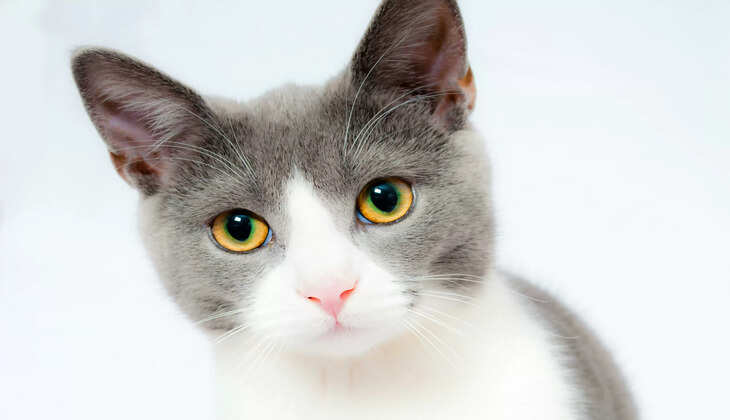Proper Diet For Pet Cat
Updated: Jun 11, 2024, 17:05 IST

Feeding your pet cat a balanced and nutritious diet is essential for their overall health and well-being. Here are some guidelines to help you provide a proper diet for your cat:
1. Understand Nutritional Needs
Cats are obligate carnivores, meaning they require a diet high in animal-based proteins. Their diet should include:
- Proteins: Essential for growth, muscle development, and overall health. Sources include meat, poultry, and fish.
- Fats: Provide energy and support healthy skin and coat. Animal fats and fish oils are good sources.
- Vitamins and Minerals: Essential for various bodily functions. Taurine is particularly important for cats and is found in animal tissues.
- Water: Vital for hydration and overall health. Ensure your cat always has access to fresh water.
2. Types of Cat Food
- Dry Food (Kibble): Convenient and long-lasting. Ensure it's high-quality and formulated specifically for cats.
- Wet Food (Canned): Provides more moisture, which can be beneficial for cats who don't drink enough water.
- Raw Diet: Some owners opt for a raw diet, but it requires careful preparation to ensure it's balanced and free from harmful bacteria.
- Homemade Diet: If you choose to make your cat's food at home, consult with a veterinarian to ensure it's nutritionally complete.
3. Portion Control and Feeding Schedule
- Portion Control: Follow the feeding guidelines on the cat food packaging or consult your vet to determine the appropriate amount based on your cat's age, weight, and activity level.
- Feeding Schedule: Cats thrive on routine. Feed your cat at the same times each day. Adult cats typically eat 2-3 times a day, while kittens may need more frequent meals.
4. Treats and Snacks
- Moderation: Treats should make up no more than 10% of your cat’s daily caloric intake.
- Healthy Options: Choose cat-specific treats or small amounts of cooked, unseasoned meat or fish.
5. Foods to Avoid
- Toxic Foods: Some human foods are toxic to cats, including chocolate, onions, garlic, grapes, raisins, and alcohol.
- Bones and Raw Fish: Can cause choking or other injuries and contain harmful bacteria or parasites.
- Dairy Products: Many cats are lactose intolerant and can develop digestive issues from dairy.
6. Special Dietary Needs
- Age: Kittens, adult cats, and senior cats have different nutritional requirements. Choose food appropriate for their life stage.
- Health Conditions: Cats with specific health issues (e.g., diabetes, kidney disease, allergies) may need special diets. Consult your veterinarian for guidance.
- Weight Management: Overweight or underweight cats may need adjustments in their diet and feeding habits.
7. Hydration
- Water Availability: Ensure fresh water is always available. Some cats prefer running water, so a pet water fountain can encourage drinking.
- Wet Food: Incorporating wet food into your cat’s diet can help maintain hydration.
8. Monitor Your Cat’s Health
- Regular Check-ups: Schedule regular veterinary visits to monitor your cat’s health and adjust their diet as needed.
- Observe Behavior: Pay attention to changes in your cat’s eating habits, weight, coat condition, and overall behavior. Any significant changes may warrant a visit to the vet.
Sample Diet Plan for an Adult Cat
Morning:
- Dry Food: 1/4 cup of high-quality cat kibble
- Water: Ensure fresh water is available
Afternoon:
- Wet Food: 1/2 can of cat food (adjust based on can size and your cat's needs)
- Water: Ensure fresh water is available
Evening:
- Dry Food: 1/4 cup of high-quality cat kibble or another serving of wet food
- Treat: Small cat treat or a teaspoon of cooked, unseasoned chicken or fish
Conclusion
A proper diet is crucial for your cat's health and longevity. Always choose high-quality cat food, ensure a balanced diet, and adjust portions according to your cat’s needs. Regular veterinary check-ups will help you keep track of your cat's health and dietary requirements.
